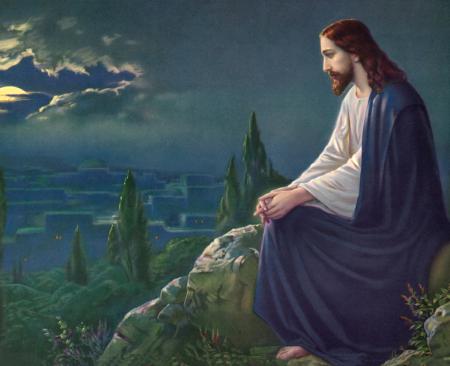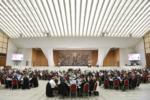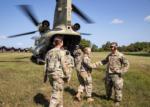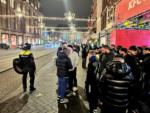Looking to the Church: the Hope of Many Poor People
It seems we can't turn on the television, open the newspaper, listen to the radio, or check our inboxes without hearing about the latest weather-related catastrophe. The havoc wreaked by Hurricanes Helene and Milton were perfect examples of the devastation that can be visited upon areas that up until now, have seen themselves as beyond the reach of the major impact of huge storms. Mother Nature's reach seems to be lengthening in scope.
Last week, I learned about another such place where life will never be the same for about 500,000 people. In this case, there is no Red Cross, FEMA, or any other outside agency coming to the rescue. The area of Maiduguri City, in the diocese of the same name, located in northeast Nigeria, was flooded when the Alau Dam collapsed after unseasonably heavy rain.
The dam collapse compounds ongoing troubles in the area -- Boko Haram insurgents in the area have killed an estimated 35,000 people and uprooted about 2.6 million others in Nigeria's north-east region. In fact, camps already full of internally displaced people are now overflowing with the addition of those made homeless by the floods.
According to AP reports, 281 inmates escaped the local prison when the walls collapsed in the flood. Few have been recaptured. Adding to that danger, the local zoo was inundated releasing dangerous reptiles and snakes into the flood waters.
In a letter to our Vatican office, Bishop Oliver Doeme Dashe of Maiduguri, pleads for help. "The flood has added to the hardship the people are experiencing in the country," he says. "Many people look up to the Church for support because it is the hope of poor people. As a diocese, we have made efforts to support the people with our meager resources...but the situation is still critical. Therefore, I wish to ask for assistance from the Pontifical Mission Societies."
Bishop Dashe lists the following as the prioritized needs:
1. Food. Even before the flood, there was serious hunger in Nigeria. The flood washed away not only crops that were ready to be harvested, but also those already stored. Most people can now hardly afford one meal a day.
2. Medicine. Because of the lack of clean water, cholera, malaria, typhoid, and dysentery are sure to follow.
3. Clothing. Most people escaped the rising water with only the clothes on their backs. They also have no mats or blankets for sleeping with the cold season just around the corner.
All this costs money, in a country where inflation sits at 32.7 percent. Can you help the people of Maiduguri? Go to propfaithboston.org and make a life-changing gift. Be sure to make it in tribute to Maiduguri. God Love You!
- Maureen Crowley Heil is Director of Programs and Development for the Pontifical Mission Societies, Boston.



















